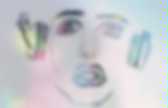

Syllabus. Syllabus. Shigeru Mizuki. Shigeru Mizuki (水木 しげる, Mizuki Shigeru? , real name: Shigeru Mura, born March 8, 1922) is a Japanese mangaka, most known for his Japanese horror manga GeGeGe no Kitaro (which was originally titled "Hakaba Kitaro"), Kappa no Sanpei and Akuma-kun. Originally from Sakaiminato in Tottori prefecture, he resides in Tokyo. His pen-name, Mizuki, comes from the time when he managed an inn called 'Mizuki Manor' while he drew pictures for kamishibai.
A specialist in stories of yōkai (a sub-genre in Japanese horror), he is considered a master of the genre. Life[edit] Born in the coastal town of Sakaiminato, Mizuki was originally named Shigeru Mura (武良 茂 Mura Shigeru), the second of three sons. However, in 1942, he was drafted into the Imperial Japanese Army and sent to New Britain Island in Papua New Guinea. Upon arriving home, Mizuki had initially planned to return to New Guinea; however, the occupation of Japan changed that. Sakaiminato[edit] Awards[edit] Selected works[edit] Manga[edit] Books[edit]
Countdown to Mizuki Shigeru’s Showa 1926-1939: A History of Japan | 百物語怪談会 Hyakumonogatari Kaidankai. The long wait is almost over! Mizuki Shigeru’s Showa 1926-1939: A History of Japan arrives in stores November 11th!!! I hope everyone is as excited as I am. I guarantee this is one of the most incredible comics you are likely to read this year.
I can’t honestly think of anything that it compares to. It’s the kind of comic you could never see in the U.S. Showa is both epic and intimate. And the Eisner-winning Onward Towards Our Noble Deaths you will recognize some of the scenes—these are the accounts that Mizuki Shigeru fictionalized for those two comics, told here in all their often harsh reality. The book itself is just beautiful. Here’s a preview of Showa 1926-1939: A History of Japan from Drawn and Quarterly Preorder! There is still time to preorder Showa 1926-1939: A History of Japan and to guarantee you get a copy. From amazon, or support your local comic shop by picking up a copy there. from amazon. Like this: Like Loading...
Manga Here - Read English Manga Free Online. Manga is Here! Manga. Manga (漫画, Manga?) Are comics created in Japan, or by Japanese creators in the Japanese language, conforming to a style developed in Japan in the late 19th century.[1] They have a long and complex pre-history in earlier Japanese art.[2] The term manga (kanji: 漫画; hiragana: まんが; katakana: マンガ; listen ; English /ˈmæŋ.ɡə/ or /ˈmɑːŋ.ɡə/) is a Japanese word referring both to comics and cartooning. "Manga" as a term used outside Japan refers specifically to comics originally published in Japan.[13] Manga-influenced comics, among original works, exist in other parts of the world, particularly in China, Hong Kong, and Taiwan ("manhua"), and South Korea ("manhwa").[14][15] In France, "la nouvelle manga" has developed as a form of bande dessinée comics drawn in styles influenced by manga.
There are also OEL manga in America too. Etymology[edit] In Japan, "manga" can refer to both animation and comics. History and characteristics[edit] Publications[edit] There has been[when?] Magazines[edit] Jacques Rancière. Jacques Rancière (born 1940) is a French philosopher, Professor of Philosophy at European Graduate School in Saas-Fee and Emeritus Professor of Philosophy at the University of Paris (St. Denis) who came to prominence when he co-authored Reading Capital (1968), with the structural Marxist philosopher Louis Althusser.[1] Life and work[edit] Rancière contributed to the influential volume Reading Capital (though his contribution is not contained in the partial English translation) before publicly breaking with Althusser over his attitude toward the May 1968 student uprising in Paris; Rancière felt Althusser's theoretical stance didn't leave enough room for spontaneous popular uprising.[2] Since then, Rancière has departed from the path set by his teacher and published a series of works probing the concepts that make up our understanding of political discourse, such as ideology and proletariat.
Influence[edit] Selected bibliography[edit] Rancière's work in English translation Further reading. Ignorant Schoolmaster - Studyplace. From Studyplace Joseph Jacotot (1770-1840) Jacotot was a French instructor who taught subjects as far-ranging as French, literature, mathematics, ideology and law (p. 1). He had a profound realization one time when he had to teach a group of Flemish students French. Since he didn’t know Flemish himself, he had the challenge of teaching these students French. Explication The conventional view of the teacher’s (or master’s, as Rancière calls it), is to “explicate”.
Emancipation Rancière distinguishes between two human traits: intelligence and will. Ignorance Rancière argues that the “Socratic Method” is a perfected form of stultification, where the role of the Master is to interrogate (demand speech) and verify that intelligence is done with attention (p. 29). The ignorant schoolmaster does not verify what the student has found, only that the student has searched (p. 31). Intelligence Most people become stultified because they believe in their inferiority (p. 39). Will Language. Files/Ranciere.pdf.